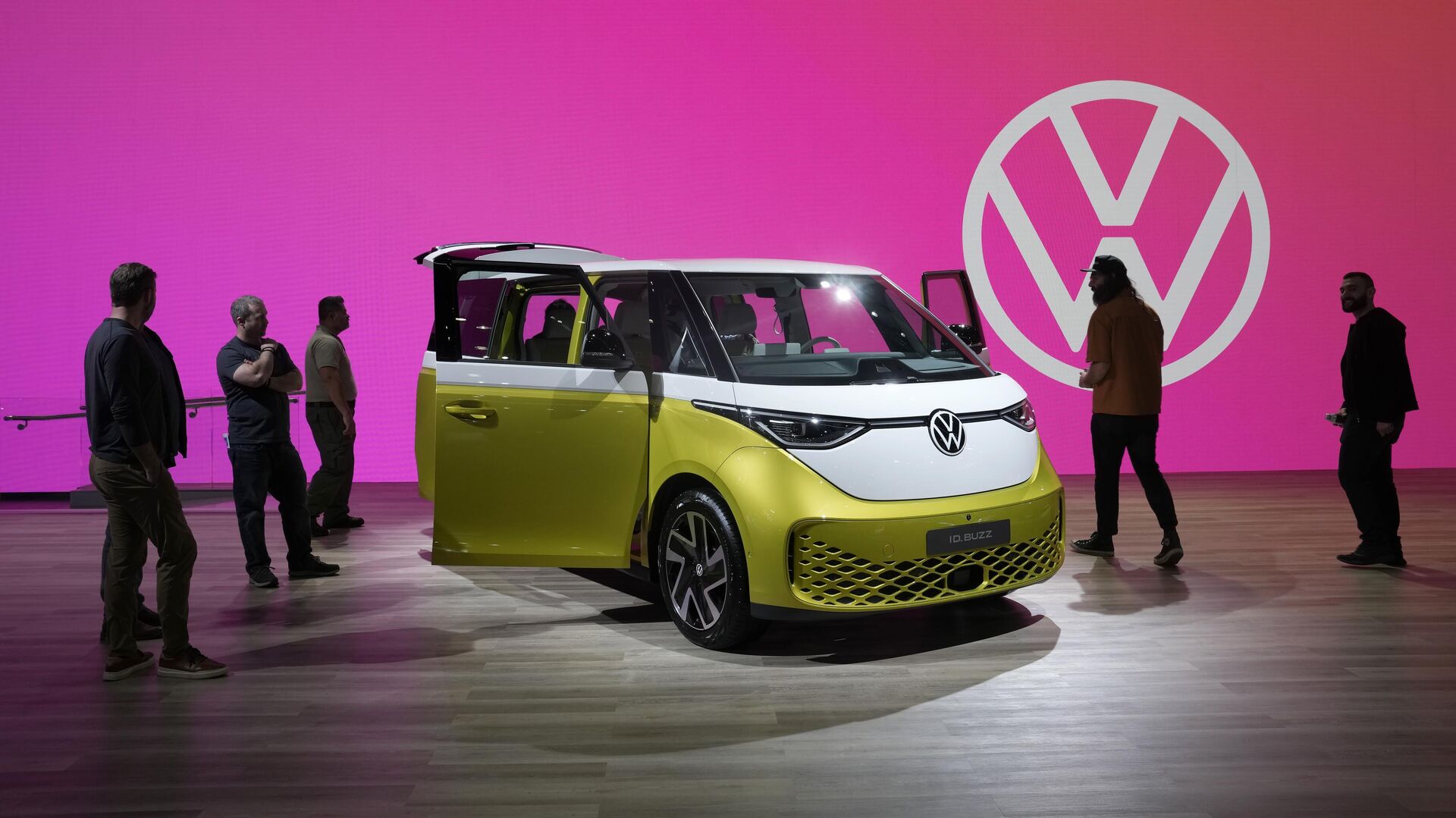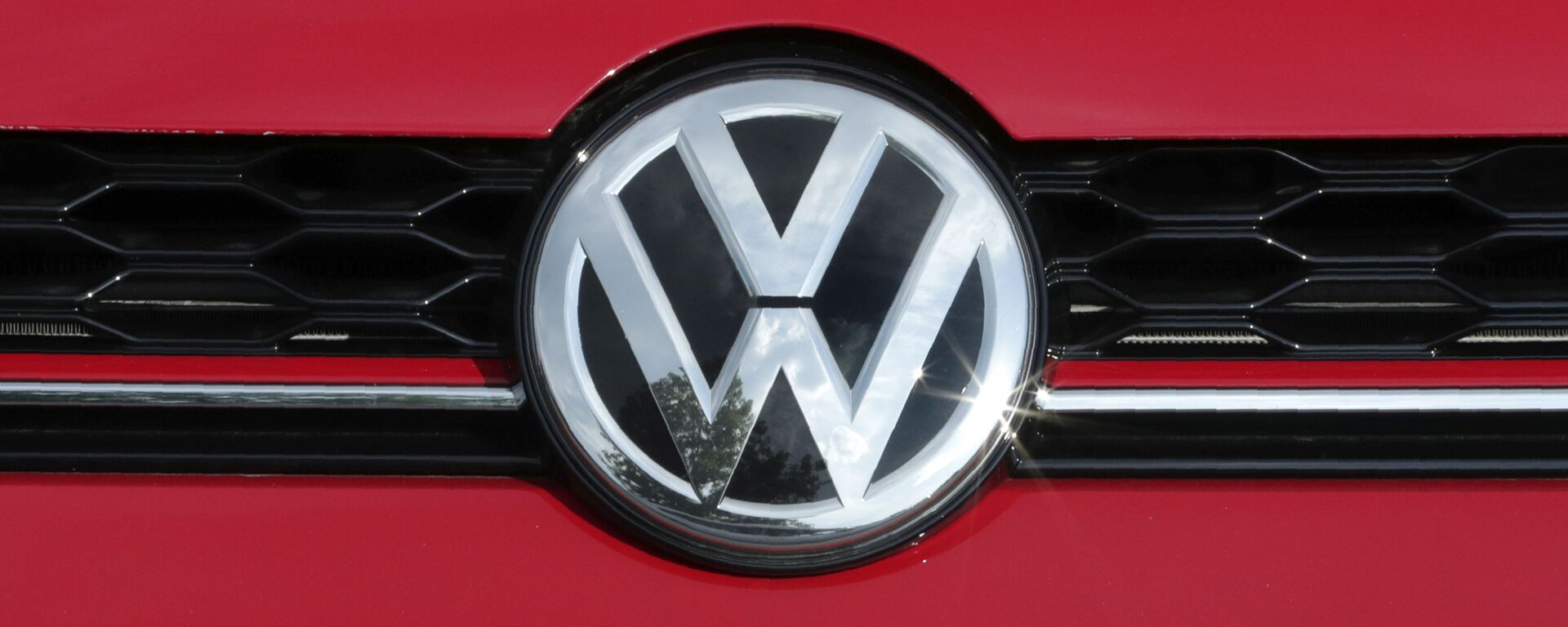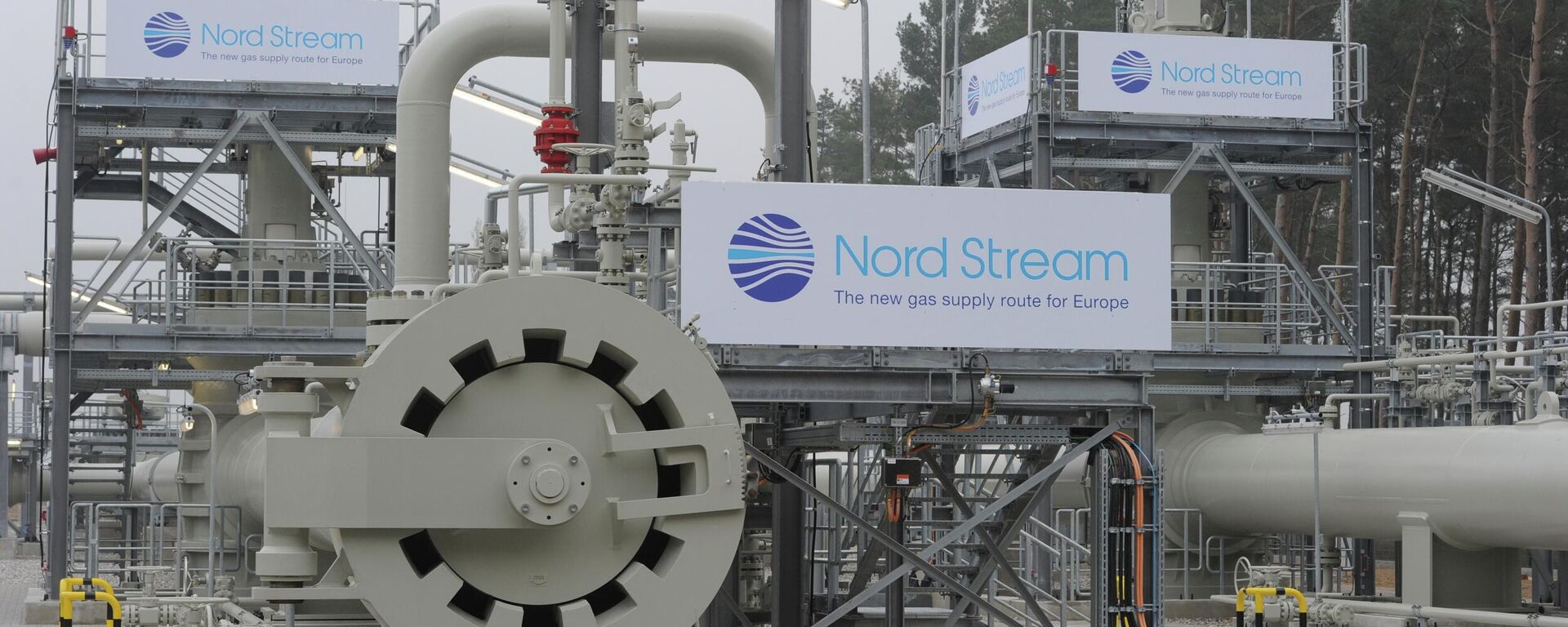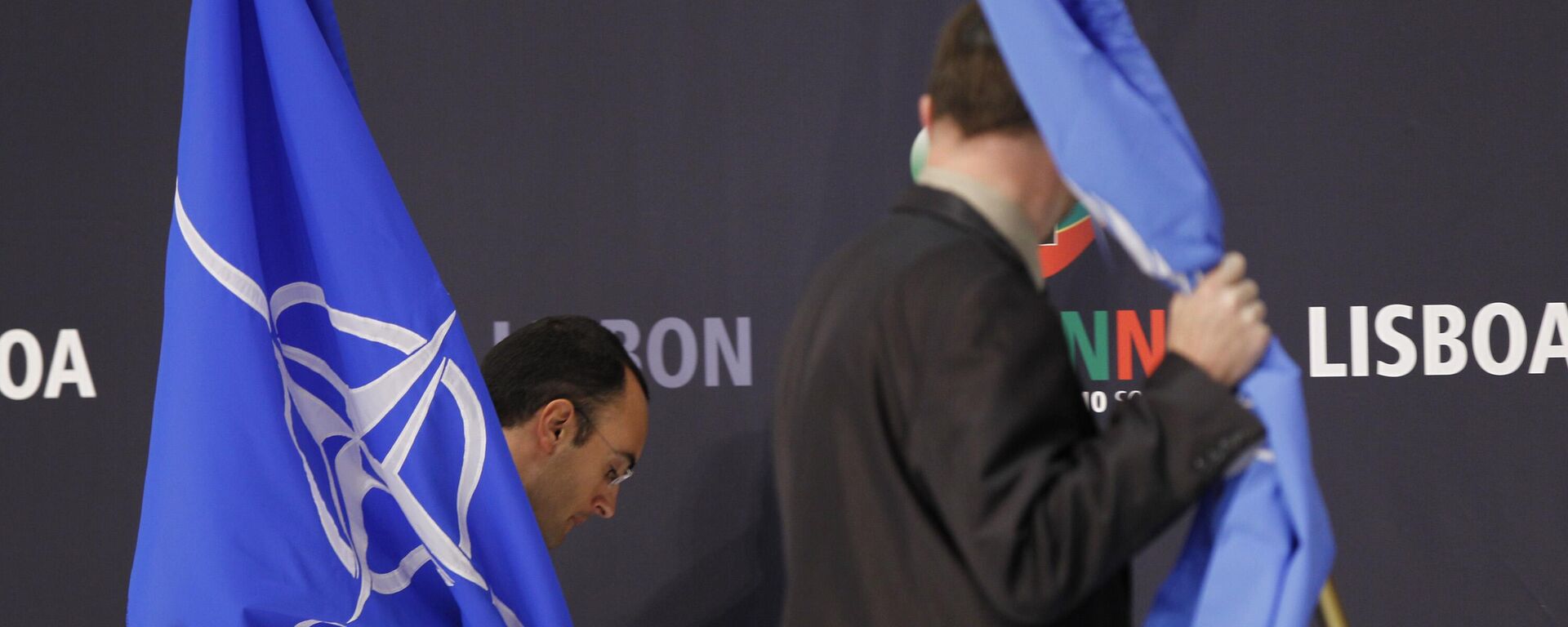https://sputnikglobe.com/20240903/volkswagen-eyes-plant-closures-in-germany-as-countrys-economy-sabotaged-by-us-1119992129.html
Volkswagen Eyes Plant Closures in Germany as Country’s Economy Sabotaged by US
Volkswagen Eyes Plant Closures in Germany as Country’s Economy Sabotaged by US
Sputnik International
Volkswagen is considering its first ever German plant closures in the company’s 87-year history as the destruction of the Nord Stream pipeline and US-backed sanctions on Russian gas continue to wreak havoc on the European country’s economy.
2024-09-03T04:38+0000
2024-09-03T04:38+0000
2024-09-03T04:50+0000
business
europe
olaf scholz
seymour hersh
emmanuel macron
germany
russia
ukraine
volkswagen
bloomberg
https://cdn1.img.sputnikglobe.com/img/07e7/03/08/1108184937_0:0:3641:2048_1920x0_80_0_0_7f8df6935c91c0e70660eadd19245ed1.jpg
Volkswagen is considering its first ever German plant closures in the company’s 87-year history as the destruction of the Nord Stream pipeline and US-backed sanctions on Russian gas continue to wreak havoc on the European country’s economy.The idea is one of a number of responses the company is considering as economic growth sputters under unpopular German Chancellor Olaf Scholz.For years Germany’s status as the industrial powerhouse of the continent has been driven by its reliance on Russian natural gas. Access to the cheap form of energy kept homes warmed and industry humming as the Nord Stream pipeline transported the fuel from Russia to Europe.All of that came to a halt in 2022 after the launch of Russia’s special military operation in Ukraine, which spurred significant Western-backed sanctions against Moscow. The transfer of gas via the Nord Stream pipeline had already slowed after the imposition of the coercive economic measures, but insult was added to injury in September when the pipeline suffered a catastrophic explosion.The sabotage of the Russo-German infrastructure is widely assumed to have been accomplished by or at the behest of the United States, with investigative journalist Seymour Hersh and others describing how the act was carried out.Now companies like Volkswagen are considering drastic measures as Germany suffers deindustrialization, including plant closures and the severing of longstanding labor agreements.German businesses have long operated via the concept of codetermination, which gives organized labor a role in corporate decision making in Germany. Bloomberg reports that this long held consensus is now under strain. Germany’s Social Democratic Party (SPD) has carried out anti-labor policy in the past, such as when former Chancellor Gerhard Schroder implemented the notorious Hartz reforms in the 2000s.Further attacks on labor rights would place Scholz in the company of controversial French President Emmanuel Macron, who has slashed workers’ protections during his time in office in the neighboring country, but would likely cause Scholz’s popularity to plummet to unsustainable levels.The SPD faced a substantial political setback Sunday as voters in eastern German states flocked to the rightwing Alternative für Deutschland party, which has criticized Scholz’s lack of response to the Nord Stream sabotage and support for the Ukraine proxy war. The upstart Sahra Wagenknecht Alliance (BSW) and democratic socialist Die Linke parties also were rewarded with substantial support for their criticism of Scholz’s pro-war policy.
https://sputnikglobe.com/20220310/volkswagen-economic-damage-to-eu-from-ukraine-crisis-may-be-worse-than-covid-19-pandemic-1093743977.html
https://sputnikglobe.com/20240823/nord-stream-ecocide--fall-of-germany-engineered-by-western-powers--analyst-1119880037.html
https://sputnikglobe.com/20240229/explosive-truth-of-us-nord-stream-sabotage-could-destroy-nato-1117047722.html
germany
russia
ukraine
Sputnik International
feedback@sputniknews.com
+74956456601
MIA „Rossiya Segodnya“
2024
John Miles
https://cdn1.img.sputnikglobe.com/img/07e8/01/19/1116388787_0:0:1316:1316_100x100_80_0_0_77e70d36afd983012b1c5d38ddb84156.jpg
John Miles
https://cdn1.img.sputnikglobe.com/img/07e8/01/19/1116388787_0:0:1316:1316_100x100_80_0_0_77e70d36afd983012b1c5d38ddb84156.jpg
News
en_EN
Sputnik International
feedback@sputniknews.com
+74956456601
MIA „Rossiya Segodnya“
Sputnik International
feedback@sputniknews.com
+74956456601
MIA „Rossiya Segodnya“
John Miles
https://cdn1.img.sputnikglobe.com/img/07e8/01/19/1116388787_0:0:1316:1316_100x100_80_0_0_77e70d36afd983012b1c5d38ddb84156.jpg
volkswagen plant closures, volkswagen economic trouble, germany economic collapse scholz, ukraine proxy war german economy, german economy, nord stream explosion, deindustrialization, rising costs, rising prices, inflation in germany
volkswagen plant closures, volkswagen economic trouble, germany economic collapse scholz, ukraine proxy war german economy, german economy, nord stream explosion, deindustrialization, rising costs, rising prices, inflation in germany
Volkswagen Eyes Plant Closures in Germany as Country’s Economy Sabotaged by US
04:38 GMT 03.09.2024 (Updated: 04:50 GMT 03.09.2024) Companies like Volkswagen are considering drastic measures as Germany suffers deindustrialization, including plant closures and the severing of longstanding labor agreements.
Volkswagen is
considering its first ever German plant closures in the company’s 87-year history as the destruction of the Nord Stream pipeline and US-backed sanctions on Russian gas continue to wreak havoc on the European country’s economy.
The idea is one of a number of responses the company is considering as economic growth sputters under unpopular German Chancellor Olaf Scholz.
“The economic environment has become even tougher and new players are pushing into Europe,” said VW’s CEO Oliver Blume, referring to cheap, technologically-superior Chinese electric vehicles on the market in Germany and other countries. “Germany as a business location is falling further behind in terms of competitiveness.”
For years Germany’s status as the industrial powerhouse of the continent has been driven by its reliance on Russian natural gas. Access to the cheap form of energy kept homes warmed and industry humming as the Nord Stream pipeline transported the fuel from Russia to Europe.
All of that came to a halt in 2022 after the launch of Russia’s special military operation in Ukraine, which spurred significant Western-backed sanctions against Moscow. The transfer of gas via the Nord Stream pipeline had already slowed after the imposition of the coercive economic measures, but insult was added to injury in September when the pipeline suffered a catastrophic explosion.
The sabotage of the Russo-German infrastructure is widely assumed to have been accomplished by or at the behest of the United States, with investigative journalist Seymour Hersh and others describing how the act was carried out.
Now companies like Volkswagen are considering drastic measures as Germany suffers deindustrialization, including plant closures and the severing of longstanding labor agreements.
German businesses have long operated via the concept of
codetermination, which gives organized labor a role in corporate decision making in Germany. Bloomberg reports that this long held consensus is now under strain. Germany’s Social Democratic Party (SPD) has carried out anti-labor policy in the past, such as when former Chancellor Gerhard Schroder
implemented the notorious Hartz reforms in the 2000s.
Further attacks on labor rights would place Scholz in the company of controversial French President Emmanuel Macron, who has slashed workers’ protections during his time in office in the neighboring country, but would likely cause Scholz’s popularity to plummet to unsustainable levels.
The SPD faced
a substantial political setback Sunday as voters in eastern German states flocked to the rightwing Alternative für Deutschland party, which has criticized Scholz’s lack of response to the Nord Stream sabotage and support for the Ukraine proxy war. The upstart Sahra Wagenknecht Alliance (BSW) and democratic socialist Die Linke parties also were rewarded with substantial support for their criticism of Scholz’s pro-war policy.








